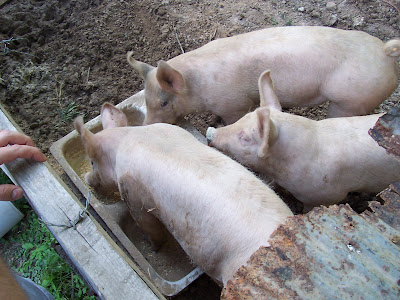The ballad Rose Conolly follows the “murdered sweetheart” pattern of ballads. Folk songs of this type are commonly found in England, Ireland and the Appalachian region of America. Some similar songs are “Little Omie Wise”, “The Wexford Girl”, “The Cruel Ship’s Carpenter” and “The Old Oak Tree”.
Most folks credit Ireland as the place of origin for Rose Conolly, and the Bunting Collection says it was collected in Coleraine in 1811. But in fact, the lyrics and tune are entirely different between the Bunting version and all later versions. In 1979, folklorist D.K. Wilgus searched for Rose Conolly in the archives of the folklore department of University College in Dublin, widely credited as being the repository for the most complete collection of Irish folklore. In my opinion, Wilgus research is the best available for tracking down the origins of Rose Conolly. He could find no exact match, but he did however, locate the following folksong that was collected in Galway in 1929, it is obviously akin to the Appalachian version of Rose Conolly.
Rosey O’Connell
It was on a Saturday morning
My true love and I did meet
Yonder a soddely garden
Our sorrows we did relate.
A bottle of poison I brought her
Of which she did not know
Which made me murder my darling
All under the banks below.
Rosey O’Connell she loved me
As dear as she loved her life
It was my whole intention
To make her my loving wife.
When it was the devil’s temptation
That soon entangled me
Which made my murder my darling
All under the ivy tree.
My mother she reared me tenderly
For seven long years and more
But seldom she ever thought of
That the gallows would be my store
My father often told me
That money would set me free
But now I am found in this country
And its hung I’ll surely be
I live in a castle of comfort
A little beyond the fair
Grief it is my comfort
And sorrow is my care.
My bolsted feathers are dingling
The whole length of day
I have but the cold floor to walk on
To pass the time away.
My father stood at the hall-door
With a watery eye
Looking at his only dear son
Hanging on the gallows so high
I leave it written on my tombstone
To read as they pass it by
That my name is James Mullrooney
That murdered Rosey O’Connell.
Since this version of the song was collected in 1929, it isn’t exactly safe to say that it is the precursor to the Appalachian version of Rose Conolly, especially since there are documented versions of the song here in America that are dated before 1929. Added to this is the flow of folks songs at the time from America to Ireland, as was the case of “The Boston Burglar”, “The Last Fierce Charge” and “Twenty One Years”. This reverse osmosis of folksongs from American to Ireland is largely attributed one of two things, either to Irish immigrants returning home from America after finding that the streets here weren’t paved with gold; or with former soldiers of the Civil War who went to Ireland to lead the Fenian Rebellion. So we are left with the question, did the ballad come from Ireland to America, or did the ballad originate in America and make its way back to Ireland?
In fact, the earliest documented report of Rose Conolly in the United States was found in the oil fields of Wetzel County, West Virginia, in 1895. American folklorists subsequently found the same song with little variation in Virginia, North Carolina, Kentucky and even as far west as Wisconsin. The Wisconsin link is attributed to lumber men who left Kentucky to work the timber camps in the Great Lakes region.
Interestingly, if you read the original lyrics to Rose Conolly that were gathered in Wetzel County, WV, you can get another clue as to where the song began. There is the line:
“I had a bottle of burgaloo wine,
My love she could not know,
That I would murder my darlin’
Down on the banks below”.
Later versions of the song called it “burgundy wine”, or “burglar’s wine” but the earliest mention is “burgaloo wine”. What is burgaloo wine? It is a type of pear wine that was commonly made in central Virginia in the late 1700’s into the early 1800’s. If you follow migration patterns of people of that day, many families came from central Virginia, into the Shenandoah Valley of Virginia and then into north-central West Virginia. This was typically within one or two generations. There were earlier migrations as well, for example, the Whetzel family for which Wetzel County, WV was named, was in the area by the middle of the 18th century, and they hailed from the Lost River Valley in what is now Hardy County ,WV (Lost River valley is adjacent to the Shenandoah Valley of Virginia). So this would place some aspect of the origins of the song in central Virginia between 1760-1830, but probably leaning toward the earlier portion of that timeframe. As time went on, many people could no longer relate to “burgaloo wine” so they renamed it something they could relate to, and today most versions use the term “burgundy wine”.
The ballad “Rose Conolly” was first recorded in Virginia is October 1928, it was recorded again in North Carolina in August 1937, but perhaps the most famous recording of the song was by Charlie Monroe in March of 1947, and he changed the title to “Down in the Willow Garden”.
My wife Shirley recorded “Rose Conelly” in July 2008, and I’ll include a Youtube video of her version of the song. Shirley said her Daddy taught her this song, and he got the song from his Granddaddy who said he had heard the song for years and years, so that would put the song in southern West Virginia during the late 1800’s.
Click here to hear Shirley sing “Rose Conelly”.
I will also post the “new” lyrics to the version of “Rose Conelly” that Shirley recorded, and you can compare them to the version collected in Galway, Ireland in 1929. Certainly, the two songs are akin, but who knows which is the parent and which is the child. Here are the lyrics Shirley uses:
“Rose Conelly”, traditional, with variations by Shirley Stewart Burns.
Down in the Willow Garden
My love and I did meet
And there we went a-courtin’
My love fell fast asleep
I had a bottle of burgaloo wine
My love she could not know
That I would murder my darlin’
Down on the banks below
I drew a saber through her
It was a dreadful knife
I threw her in the river
Which was a bloody sight
My father had often told me
That money would set me free
If I would murder that dear little girl
who carried my baby
Now he sits at his cabin door
Wiping his tear-brimmed eyes
For his only son is hangin’
Upon the scaffold high
My race is run beneath the sun
Hells gates lay open for me
For I did murder that dear little girl
Whose name is Rose Conelly.
Copyright, Shirley Stewart Burns 2008.
Click here to hear Shirley sing "Rose Conelly"
------
So perhaps Rose Conolly does hail from Ireland, but just as likely she hails from somewhere in Appalachia. As do the people here, our music comes from just as many points of origin. One thing is for sure, she is uniquely Appalachian now.
Movies, Anyone?
15 hours ago





































